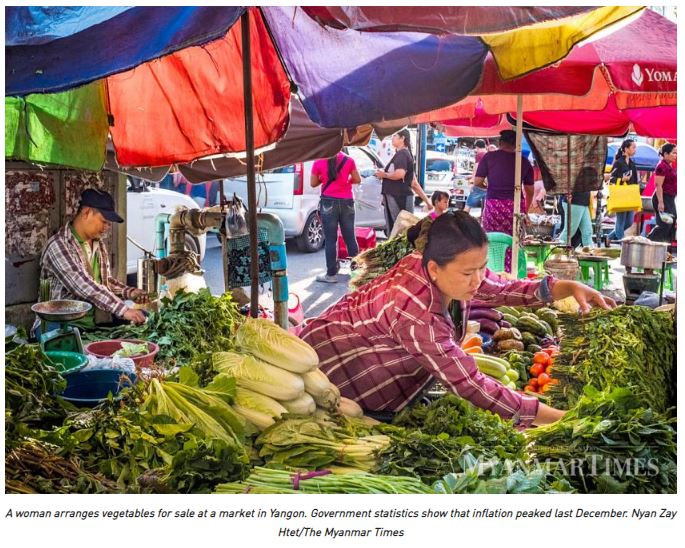Myanmar inflation peaks at 8.8% in December 2019
Inflation in 2019 peaked at 8.81 percent in December, the highest level in 12 months, according to the latest available data released by the Central Statistical Organisation (CSO). In January 2019, inflation was 6.94pc.
The higher inflation levels are due to steeper electricity tariffs implemented by the government since July last year.
Other reasons include the rising price of food, including rice, oil, meat, vegetables and other basic commodities, which was mainly driven by volatile exchange rates, according to the CSO.
That also affected the price of non-food items, mainly fuel, which is imported.
Experts do not expect the high price levels to continue though. The International Monetary Fund expects inflation to taper to 6pc-7pc in the coming months as the “one-off impact from higher electricity tariffs ends and pressures from rising food prices abate.”

Ko Ko Htay/The Myanmar Times
While the World Bank agrees that the impact of high electricity prices is temporary, it warned that pressure from higher prices may continue to be felt on the ground should firms pass down a portion of higher electricity costs to consumers.
High inflation rates could adversely affect lower-income households and undermine business competitiveness, the World Bank noted in a recent report. That could hurt savers, workers with fixed wages, and lower-income households, which spend a large share of their income on food.
Myanmar’s external competitiveness could also weaken if its inflation rate were to exceed those of its major trading partners over a substantial period, according to the World Bank.
Inflation was at its peak at more than 10pc in April 2016 during the term of the current government. By March 2018, the government had successfully managed to bring inflation down to a low of 4pc.
Source: https://www.mmtimes.com/news/myanmar-inflation-peaks-88-december-2019.html


 English
English




